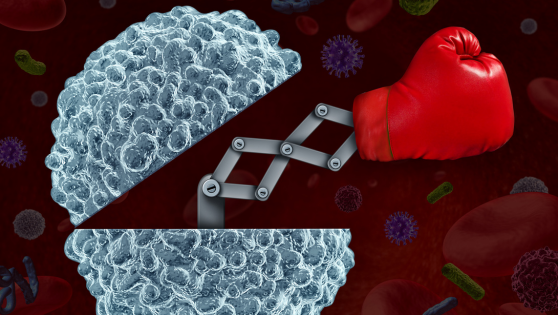Introduction
If you or someone you know suffers from chronic fatigue that never seems to go away and is interfering with the quality of their life, it’s probably CFS (chronic fatigue syndrome). Aptly named, CFS is a chronic condition that is characterized by fatigue or exhaustion.
Often there is no known cause. This can be very frustrating for the sufferer and those who live with someone who is suffering in this way. It’s so much worse than just being tired and unfortunately, people who don’t have it often don’t understand it.
Many people with CFS feel judged, misunderstood, and not heard. Worse, some people who experience short-term exhaustion will self-diagnose and say that the latest diet or treatment fixed them, which can complicate issues even more for the sufferer who has undoubtedly tried everything under the sun to get better but can’t. Maybe the next thing will help. Keep trying.
But, like most things that are scary, understanding the issue can often help one deal with it in a new way. You may not find a cure, but you can learn how to deal with it, and stand up for yourself or your loved one who has it.
What Is Chronic Fatigue Syndrome?
Chronic fatigue syndrome is a very debilitating disease of unknown origin. It’s characterized by persistent exhaustion, reduction of productivity, loss of quality of life, along with depression.
Rather than simply being a symptom of another disease (which it can be), it’s a debilitating issue all on its own that sometimes cannot be properly diagnosed or treated due to the abundance of symptoms that sometimes come and go. But the thing that makes it chronic is the fact that it always comes back.
The people who get CFS are varied, making diagnosis especially difficult. Over one million Americans have it, and many more around the world. In fact, it’s even got a new name since so many people have it. The new name is myalgic encephalomyelitis and it is now often called ME for short.
For the purposes of this blog, we’re going to call it CFS since that’s still what it’s most commonly called. However, ME is probably more accurate.
What we do know about CFS is:
- People who get it are often in their 40s and 50s – but anyone can get it.
- Women develop it four times as often as others.
- It’s often not serious but for about a quarter it is severe.
If the condition is mild, most people manage it on their own and never even seek professional care about it because they think it’s normal.
People with moderate symptoms tend to seek help because they cannot move around for long periods of time and have no choice but to nap in the afternoons. This is when it starts interfering with jobs or worse, causing additional issues as people seek relief using stimulating drugs.
When symptoms get severe, it’s beginning to affect the quality of life in a bad way – as badly as anyone with issues people deem more serious like lupus, heart disease, multiple sclerosis, or rheumatoid arthritis.
Triggers of Chronic Fatigue Syndrome
Right now, we do not know what causes CFS. However, there does seem to be a family genetic history to it in some cases. We don’t know yet if this is just that the family is more susceptible, or that something in the genetic makeup is causing it.
There is also some research to suggest that some people who have CFS also have the Epstein-Barr virus (known to cause mononucleosis) or the Ross River virus (a debilitating virus that affects joints, making them painful and swollen).
In addition, a lot of CFS suffers are found to have Coxiella burnetii – a bacterial pathogen which causes fever, usually when someone is already infected with something else. But we still don’t know what comes first, CFS or another disease such as Lyme Disease which is also characterized by chronic fatigue. CFS goes together with other illnesses too, from MS to fibromyalgia to hypothyroidism and many others.
If you or someone you know gets sick and then seems to take an extra-long time to recover or is not recovering, suspect CFS to be an issue. If you know what it could be, you can alert the doctor who can ask the right questions so that you can get the right diagnosis.
Symptoms of Chronic Fatigue Syndrome
There are many symptoms of CFS, so let’s talk about as many of them as we can. It’s important to note that the main symptom is fatigue or exhaustion for six months or more that doesn’t seem to be getting better, but that isn’t all. Many of the other symptoms can be just as debilitating and made worse piled on top of chronic fatigue.
Fatigue
The main characteristic of CFS is the debilitating fatigue. As mentioned, if the fatigue is lasting six months or more, it’s considered a big indicator that the patient has CFS. Fatigue itself is characterized by a whole host of symptoms too, such as chronic sleepiness, headache, vertigo, aching muscles, muscle weakness, imparted reflexes, judgment issues, moodiness and more.
One sufferer describes her feelings of fatigue like this:
“You know how you feel when you’re just finally falling off to sleep? But then someone wakes you? Or you know how you felt the fourth day after giving birth, and you’ve not slept but a few hours? You never thought you could be that tired. That’s how you feel when you have CFS. But it doesn’t ever get better. The baby never grows up. No matter how much sleep or rest you get the tiredness sticks with you. You’re always in perpetual need of sleep but sleep doesn’t help.”
People with CFS experience extra fatigue after doing things normal people do all the time, such as cleaning the kitchen or vacuuming the floor. They feel as if they climbed a mountain and their legs and arms are filled with lead. They must sleep. But it doesn’t help because they also have fatigue after sleeping. It never ends.
People with CFS also experience the following:
- Sleep Disturbances – Sometimes people with CFS try to sleep and can’t fall asleep or stay asleep even though they feel on the verge of falling asleep all the time. They wake up due to any sound, or roll over and wake up, or take hours just to fall asleep due to watching the clock worried about needing to get up and function.
- Cognitive Problems – People with CFS often feel as if they cannot make decisions and often their judgment is impaired. They cannot read and remember something. They can’t pay attention to daily activities such as cooking, for example. They may forget what they were doing, and their short-term memory suffers.
- Anxiety – The issues associated with CFS often cause the person to feel very anxious about their lives. They feel as if they’re failures and cannot get up. Going to or planning anything sends them into anxiety because they worry they won’t be able to live up to their obligations. They may plan something a few days or months down the line and bow out due to not being able to stay awake that day enough to be around people. They may not have the energy to get dressed.
- Depression – When reality sets in, many people with CFS suffer from depression. This is depression for a reason. They can’t do the things they once loved doing; society can be judgmental about that, and no one understands. They may self-isolate and then depression becomes a serious matter for them.
- Headaches – Many people with CFS also suffer from migraine disorders too, which is why many people with CFS also get headaches. This is not just a regular headache either; it’s a debilitating addition to the fatigue that plagues them.
- Muscle Aches – Sometimes this is due to a primary issue such as MS or fibromyalgia causing the CFS in the first place, but some CFS suffers experience muscle aches and pains as part of the condition.
- Muscle Weakness – Many people with CFS have weak muscles, often due to being too lethargic to exercise or move around. But we don’t know which came first. What we do know is that the CDC states that for some CFS patients, hard exercise makes the condition worse.
- Pain Sensitivity – This is another issue that may be caused by primary conditions that are causing the CFS but made much worse by the CFS. Sufferers seem to have a heightened sense of pain.
- Sore Throat – Many people with CFS complain of sore throats more than others. This can sometimes be due to a recurring strep infection, which may also be a cause of CFS in some people.
- Low-Grade Fever – A lot of CFS sufferers have many low-grade fevers that cannot be traced back to a pathogen. That doesn’t mean there isn’t one; we just don’t know what it is yet.
- Body Pain – Many people with CFS report overall body pain, and this is true whether they have an underlying problem with MS or fibromyalgia or not.
- Slow Reflexes – Many people with CFS have slow reflexes due to their exhaustion and not being able to focus at all.
These symptoms and more characterize CFS and are part of the problem with getting a good diagnosis. Even the diagnosis of CFS can be depressing because there is no cure for CFS and if it is severe it can be debilitating. It does qualify for disability in most countries with a social system, but it can take years and years to get approval – even with a doctor’s recommendation.
What to Ask and Tell Your Doctor
One problem with getting CFS is most people who come down with it were probably very active and healthy prior to experiencing this problem. Due to that, they don’t have a detailed record of health prior to the condition manifesting and they tend to end up talking to doctors who don’t realize or understand the real problems of CFS.
If you think you or a loved one has CFS, your best bet is to first find a doctor who truly understands the condition and knows how to talk to people with CFS. Look for a functional medicine doctor who states that they treat CFS or ME.
- Take Someone with You – It may seem strange but if you take someone with you to the doctor and have them go in with you, you’re more likely to get better treatment. If someone is there as an advocate to also answer the doctor’s questions and vouch for your condition, and for the fact you used to be healthy, it will help you get better care.
- Write Down Your Questions – Bring a list of questions. You may think that you’ll remember before you go, but you won’t. It’s intimidating and doctors are in a rush, so you’ll feel rushed and you won’t ask. Bring the questions and go through them; don’t let yourself be rushed through the appointment.
- Be Specific as Possible – When you describe your symptoms, instead of saying that you’re tired, say something specific. “I used to be able to hike for an hour a day but now I can’t even walk to the mailbox”, is much more descriptive than “I can’t do what I used to do”. Also, try to focus on the main symptom that is bothering you most.
- Ask Questions – When a doctor is recommending certain tests, it’s okay to ask more questions. You want to know how this test will lead your doctor to treat your symptoms.
- Write Things Down – You’re not going to remember what your doctor says, so be sure to take notes so that you can refer to them later. If your doctor has a patient portal, ask them if they put their notes online for you to read later.
One thing to remember when dealing with medical professionals is that they went into this business to cure people. It’s also frustrating for them when they can’t. The hope is to find a doctor who is understanding enough to listen and can explain things to you about your treatment and prognosis.
Having said that, most doctors are rushed in today’s healthcare world so don’t set your sights too high. You need to have a doctor if you’re ever going to get any type of help – either from the medical system or from the government if you should need disability, so don’t avoid seeking medical help. But, do go in with an understanding that the medical profession may not be able to do much for you other than create that paper trail you may need.
Getting a Chronic Fatigue Diagnosis
One thing to remember is that even the experts don’t know what is causing CFS. There are theories, and some doctors don’t even want to deal with it at all. The medical professionals disagree about CFS. Some don’t even think it’s a real illness. If you run into one of those, find a new doctor. But, suffice it to say, getting a diagnosis is very hard, but you can get one if that’s what’s wrong with you.
Your primary care doctor will probably send you to a specialist, more than likely a rheumatologist. This is likely not the best place to go because they don’t usually want to treat CFS. You probably want to be referred to a functional medicine doctor who treats these types of conditions if you think that’s what you have.
Sometimes doctors don’t want to treat people with CFS because so many people diagnose themselves with CFS and aren’t willing to go through the tests that need to be done to rule out everything else it could be. And even after all the tests, some doctors still don’t want to diagnose CFS because they want to find the cause first. The tests are not a bad thing because you never know, but they can be an impediment to getting a CFS diagnosis.
The way CFS is diagnosed is by exclusion. If you don’t have any of the other conditions that can cause CFS, then you have CFS from an unidentified cause. This is difficult for most doctors to do unless they have experience with CFS and ME.
Conditions that your doctor will want to test you for to rule them out or treat are:
- Medication Side Effects – If you are taking medications, sometimes they can be the cause of fatigue and that needs to be determined. Even over-the-counter meds, herbs, and supplements can cause problems. The doctor will note the meds you’re on and research side effects.
- Sleep Apnea – If you have this condition, you’re more likely to be exhausted all day long even though you think you slept. It can often be one of the causes of chronic fatigue and should be treated because of your heightened risk of heart attack and other cardiovascular issues, including sudden death during sleep. You’ll have a sleep study at a sleep center.
- Narcolepsy – This is a real condition that causes people to fall asleep suddenly, but it’s not like in the comic books or TV shows. You can have this and not realize it. There are medications to help. They use a sleep latency test which is a questionnaire as well as observation via a sleep study.
- Cancer – You could have undiagnosed cancer that is making you feel bad, so getting tests that show whether you have any cancer in your body can help tremendously. Many different tests will be conducted, from lumbar punctures, to imaging, to blood and urine tests.
- Lyme Disease – Many people who have Lyme disease also have CFS, and sometimes the first indication you have Lyme disease is having CFS symptoms. This is checked via a blood test. Note that you could have had Lyme disease and it can still be the cause even with a negative test.
- Lupus – This is a serious condition that sometimes leads to death and should be diagnosed. It can also cause chronic fatigue. This is done via a urine test called an antinuclear antibody test (ANA), but also via various blood tests. Sometimes imaging tests are done as well as a biopsy.
- Multiple Sclerosis – Some of the symptoms of CFS can be much like early MS, so that must be ruled out too. This is done via a lumbar puncture as well as an MRI. Usually the MRI is first.
- Viral Infections – Many infections such as strep can cause CFS symptoms to manifest instead of other obvious symptoms. It’s good to rule this out too. This is checked via a blood test. Viral infections cannot be treated with antibiotics.
- Bacterial Infections – If you have a bacterial infection that you weren’t aware of, that can also show signs of CFS. Sometimes if one cannot be found they may still use an antibiotic which is known to treat hard-to-find bacterial infections.
- Addison’s Disease – This is a problem with your adrenal glands and can manifest as CFS, anemia, low blood pressure and skin discoloration. A blood test that measures sodium, potassium, cortisol, and ACTH will be conducted.
- Vitamin Deficiencies – You may not realize you have a vitamin and mineral deficiency. Many people today take vitamins and try to eat right, but digestive disorders and genetics can play into problems with the vitamins working. This test is a simple blood test.
- Thyroid Disorders – If you have a thyroid issue, it can manifest as chronic fatigue and if treated you could be cured of it, in some cases anyway. This test is usually a blood test, but an ultrasound of your thyroid may also be ordered.
- Mitochondrial Disorders – This is a disorder characterized by the body’s inability to produce adequate energy to perform all its functions. This is conducted via an intermuscular biopsy from your upper thigh.
The problem is, if you do have any of these conditions, they will end up the blame for your CFS when they may not be. CFS may stand on its own. But, you may feel better once you’re treated for the underlying conditions you may also have.
Try to avoid becoming disillusioned if you have been treated (and cured) of all the other conditions but you are still exhausted. It may take years for a doctor to finally state that you have CFS, but it’s only because they want to cure you. They are also frustrated with this condition and many don’t want to believe it exists.
The best thing to do is to keep going. Keep trying different doctors so that you can get the type of healthcare that you want, need, and deserve. It is frustrating but try to understand the cause behind it. Doctors are trained to cure. Some things are not yet curable and that’s hard for them to face.
Let’s talk about some treatment options if you are diagnosed with CFS.
Treatment Options for Chronic Fatigue Sufferers
There are treatment options for people who suffer from CFS. But the fact is, none of them will cure you. CFS is a chronic condition; we’re just not sure what causes it and some people end up on disability due to it. It’s not made up and it’s not pretend, although some people who claim to have had it and have cured it, are often out to make a buck off the condition and never had it at all. But there is also a possibility that for some it goes into remission. We really don’t know.
Everyone who has CFS knows someone who says they have it and still works 80 hours a week and considers you lazy for not doing the same. They probably don’t have it, though. The best way to treat your CFS is the way that feels right for you. But don’t get discouraged if something doesn’t work right away. Give anything you try at least 30 days to see if you find a real difference.
If you want to figure out how to treat your CFS, you can look at these options. You probably need do almost all of them depending on your situation.
Consider Getting a Mitochondrial Function Test
This test (mentioned above) is difficult, invasive, and costly. You may not be able to do it. But it can be worth it if you’ve tried everything else and nothing is showing up. They take a piece of your thigh, which doesn’t cause problems but does leave a scar.
This test will show if you have a problem with processing energy so that you can function normally or not. If you do have a problem, then you’ll know to take extra vitamins and get screened for issues that affect people with mitochondrial disorders like thyroid disease and diabetes.
Eat a Healthy Whole Food Diet
When you have CFS, your best defense is a good diet. But, remember that for everyone a good diet is different. It’s a good idea to get tested for allergies to find out if you have any issues with certain foods like wheat. Some people even have allergies to raw fruit like avocado, bananas, mangos, and russet potatoes. Incidentally, people who are sensitive to these foods are usually also sensitive to latex.
If you look at most healthy diets that have scholarly studies backing them up, though, they all have one thing in common. Eat whole foods that are not processed. Whether you eat meat or choose not to, there are many choices within whole unprocessed foods to choose from.
Focus on reducing processed food like white flour and white sugar from your diet. Don’t eat additives or fake ingredients that don’t offer any nutritional support. Focus most of your food on high nutrition so that you can get as many of the macro and micronutrients you need from your diet. It can help to educate yourself on what the human body really needs each day to thrive.
Develop an Exercise Plan
Even though you’re tired, you need to move, but you need to move in a smart way. You may not be able to do as much as you want to but doing something each day will help. You need to start at your level and not worry about what people say you should do. Set your intentions and build up gradually. But do not do hard exercise; instead, focus on keeping your muscles strong and the flexibility that you need to live your daily life.
Since muscle weakness is a serious problem for people with CFS, consider doing muscle strengthening exercises instead of exercises that use a lot of energy. Using resistance bands is a great way to be gentle. Starting a Pilates or yoga practice is also a great way to get in exercise without overexerting yourself.
Some days you may only be able to walk to your mailbox, while some days you’ll feel as if you can do more. Just do one thing each day and build from there. If you do something that makes it worse, stop doing it. Make sure you also rest. Some people with CFS also have jobs, so you want to get enough rest so that you can still do your job. Strengthen the muscles you need for your job in a gentle way and focus on getting the type of rest you need so that you can keep doing that job.
Establish a Sleep Regimen
Most people do find relief in their issues with sleep by setting a sleep regimen. Go to bed at the same time each night. Do the same rituals each night. Make your bedroom an oasis for sleep by ridding yourself of technology, lights, and things that distract from sleep. Put a white noise machine in there or a fan. Keep the temperature as low as possible – around 68 degrees is best.
Make this your special time so that you can sleep and not focus on anything else but sleep. Invest in pajamas that are comfortable, sheets that are soft, and a mattress that is perfect for your needs. Get blackout blinds on your windows and make sure it’s dark. You’re going to sleep much better.
Set your alarm to give you only 7 to 9 hours of sleep a night. You want to avoid oversleeping as much as you want to avoid under-sleeping. In some cases, people with depression do best on about six hours of sleep so you may want to test this idea out by trying different amounts of time. It may also help to take a hot bath before bed or meditate, so that you can clear your mind and fall asleep faster.
Drink Plenty of Fresh Water
Throughout the day, drink plenty of fresh, filtered water so that you stay hydrated. Most people do well on eight to ten 8-oz glasses of water a day. The trick is to drink it throughout the day and preferably not with meals. Watering down your food in your stomach can impede digestion. If you drink all day long, you’re going to be more likely to get the required amount down, digest your food better and have overall better digestion.
Take Vitamins That You Need
You’ve likely had blood tests by now that indicate your vitamin levels. Take the vitamins that may have been recommended. In most cases, people only need B12 and D3, but if you have a lot of muscle pain some people find that they need magnesium. It’s important to talk to your doctor before adding these vitamins.
Clean Up Your Environment
Many of us have a lot more chemicals in our lives than we think. The formaldehyde in your carpet and clothing, the chemicals used to clean your home and the air we breathe can be full of chemicals and environmental hazards. Not to mention what we drive and wear.
You can clean this up as much as possible by investing in a good air filter and trying to buy healthier things such as glass for storing instead of plastic and reusing bags instead of using plastic or even paper. Buying natural fibers that aren’t treated harshly and so forth can help a lot. Watching what you put on your skin and inside your body to avoid as many chemicals as possible will also help. Every little change will make a big difference.
The Way Chronic Fatigue Syndrome Can Change Your Lifestyle
In many ways, a diagnosis of CFS can totally change your lifestyle. Even before your diagnosis, the changes might not be so great at first because you don’t know what’s wrong or what to do. It can be insidious. You may find that you’re increasingly drinking coffee, eating more sugar, and even taking illicit drugs to stay active. But, you can take charge and make good lifestyle changes that will help even if it won’t cure you.
- Learn to Pace Yourself – Understand that some days you’ll have more energy than others, but that isn’t an excuse to overdo it. Be aware that you simply cannot do what you used to do. Start with the basic needs of life, and work toward being able to get those done, such as cleaning your house and bathing. These are more important than going for a run.
- Changing Your Job – This may be the hardest change. But if you have a physically demanding job, you may find that you simply can’t keep doing it. You may need to seek retraining, or you may (depending on your age) determine that you need to seek out disability. At least in the USA, CFS is covered under the Americans with Disabilities Act and your job needs to make certain concessions, but you also still need to perform the main aspects of your job to keep it.
- Learn to Eat Right – Eating right for you may be different than what it means for someone else. Find the right diet for you by starting with an elimination diet. This will remove foods from your diet and you’ll find out if you feel better. Be willing to try different diets for 30 days at a time to find out if they help. You can’t go wrong eliminating processed food and junk.
- Change How You Exercise – If you were accustomed to exercising differently than you can now, understand that you can still do something. You can do water exercises, a softer yoga practice, and walk instead of high-impact workouts and movements that exert more energy than you have. And there are, sadly, some people who have CFS so badly that they really cannot do any type of exercise. Work with your medical professionals to know what will help you best.
- Learn to Love Yourself – One of the most important aspects of CFS that will help is to learn to love yourself. It’s frustrating to have a condition that is not well-researched and is so misunderstood. But you know what’s real and what’s not. Demand people respect you and ask for what you need.
- Let Go of Unsupportive People – It’s so hard to accept when you find that there are people in your life that really don’t support you. Whether they’re doctors, or your spouse, or children, or family and friends, it can happen. But if they still don’t “believe” you or they are judgmental and cruel even after you’ve asked for what you need, you may have to let them go from your life so that you can take care of yourself.
Don’t be afraid of change, even if your family and friends don’t understand. Find professionals that are supportive and do what you need to do to help yourself. You are the best arbiter of your own health. You’re also the best advocate you have. If you don’t have CFS but you know someone who does, you can be a support system for them in a world that may not understand and thinks that CFS isn’t real.
Outlook for Chronic Fatigue Syndrome Sufferers
Right now, there is no cure for chronic fatigue syndrome. But, there are enough people diagnosed now that it’s on the radar of professionals, and it is being researched more. Whenever something isn’t really that common, it’s harder to fund research. But, there is research happening, if under different names. Some of the names across the country that CFS has is:
- Myalgic encephalomyelitis (ME)
- Post viral fatigue syndrome (PVFS)
- Akureyri disease
- Benign myalgic encephalomyelitis
- Chronic fatigue immune dysfunction
- Chronic infectious mononucleosis
Because of all the different names, you may have CFS but it may have been called something else by your doctor. Every race is equally susceptible to CFS, as are different sexes, but right now it’s mostly diagnosed in females, and African Americans and Native Americans seem to have it at higher rates.
People who can be diagnosed often find that they can live with the condition with a support system that accepts this condition as real. Being under the care of a caring doctor, physical therapist, and a knowledgeable psychological professional who knows the condition is real but helps you deal with it in realistic ways, is helpful.
This is a condition that will need to be managed for a lifetime. You’ll have good days and bad days. It’s good to use every resource that you have including:
- Medical doctors
- Physical therapists
- Exercise therapists
- Dieticians
- Cognitive behavioral therapists
Plus, learning to pace yourself is essential. Pacing yourself is the ability to accept your condition and not overdo it just because you feel good today. Pacing yourself while also paying close attention to how you feel and other health issues you may have often helps a person cope with the condition. Learning to deal with other conditions helps too.
For example, if you’re having issues with drugs, weight issues, other health concerns and so forth, it’s important to understand that it’s not all caused by CFS although it may have manifested itself because of your condition – especially when it comes to drugs and self-medicating. It can still be treated on its own, which will help with your overall health.
The important thing is to get started treating yourself better right now, even before you’re officially diagnosed. You can start with diet, hydration, pacing yourself, and trying to live as healthy of a life as possible. Self-love can go a long way when those around you seem to not understand.
If you are looking for more tips and support, join me over on my group page, The Village – A Natural HEALing Community, to get tons of information and tips to help you take your HEALTHY EATING and ACTIVE LIVING to the next level.
REFERENCES:
- Centers for Disease Control and Prevention (CDC) – Chronic Fatigue Syndrome: https://www.cdc.gov/me-cfs/index.html
- Mayo Clinic – Chronic Fatigue Syndrome: https://www.mayoclinic.org/diseases-conditions/chronic-fatigue-syndrome/symptoms-causes/syc-20360490
- National Institute of Neurological Disorders and Stroke (NINDS) – Chronic Fatigue Syndrome: https://www.ninds.nih.gov/Disorders/All-Disorders/Chronic-Fatigue-Syndrome-Information-Page
- MedlinePlus – Chronic Fatigue Syndrome: https://medlineplus.gov/chronicfatiguesyndrome.html
- WebMD – Chronic Fatigue Syndrome (CFS): https://www.webmd.com/chronic-fatigue-syndrome/default.htm
- National Health Service (NHS) – Chronic fatigue syndrome (CFS): https://www.nhs.uk/conditions/chronic-fatigue-syndrome-cfs/
- Chronic Fatigue Syndrome Advisory Committee (CFSAC): https://www.hhs.gov/ash/advisory-committees/cfsac/index.html
MORE RELATED POSTS:








+leave a comment . . .